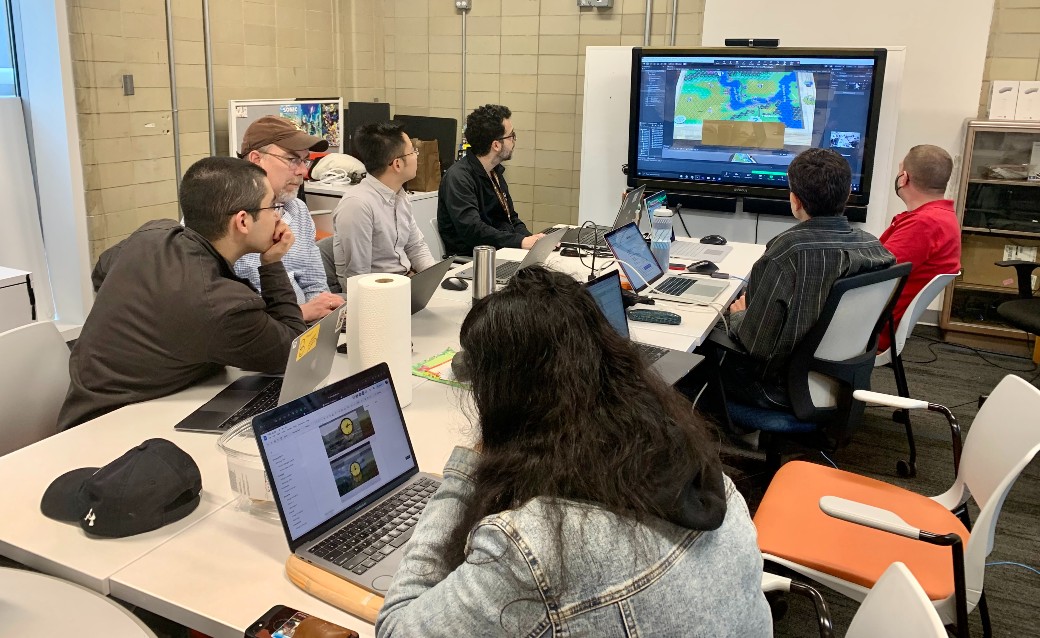As technology continues to transform how people perceive and interact with their surroundings, the Lehigh Valley Social Impact Fellowship project team “RiVR” (Research in Immersive Virtual Reality) is trailblazing new pathways in teaching and learning.
The story of RiVR started with Alec Bodzin, professor of instructional technology and teacher education, who envisioned integrating immersive virtual reality with educational platforms. In 2018, his idea took flight, literally, with a prototype that allowed middle school students to virtually soar over the Lehigh Valley, providing a bird's-eye view of their local environment.
Intrigued by this innovative approach, the students enthusiastically responded 'yes' when Bodzin asked if they'd like more games to learn about local history and the environment. This positive feedback inspired Bodzin and his research group to delve deeper into VR technology, seeing its potential to dynamically and interactively facilitate student exploration of local environments and their rich natural, social and industrial histories.
Currently, the RiVR team is developing five VR games, each with unique educational purposes. The Lehigh Gap Story, the first of the five to be developed, provides a virtual hike to learn about the environmental changes that occurred in the Lehigh River Watershed in Pennsylvania during the past two centuries. The second, Mystery of Lehigh Gap, contains five mini-games that take players back in time to learn history. Watershed Explorers, the third, engages players in an immersive learning experience centered on watershed issues and industrial history. The fourth game, Flood Adventures, guides students through flood safety in flood-prone environments. The fifth and the newest game, How Healthy Are Our Rivers and Streams, emphasizes environmental health, and results from a partnership with the Jacobsburg Environmental Education Center.
"Our goal is to transform the way students learn," Bodzin says.
Having observed many unengaged learners in traditional classrooms, he believes the RiVR team’s approach holds the potential to revolutionize education.
"There's a strong possibility that our work could be a significant game-changer," he says.





